CMS Hub vs WordPress is a popular comparison when looking for the best CMS for your website. There’s no denying that WordPress is one of the most popular content management systems (CMS) around. Powering over 35% of the worldwide web, there’s a reason this free and simple-to-use platform is so widely used. From hobby blogs to major corporations, WordPress gives people an easy and customizable way to get online.
That said, 65% of the web does not use WordPress.
So, what exactly is the rest of the world using to build their websites? Sure, there are the well-known WordPress CMS competitors – Joomla, Drupal, Shopify, and Wix. But do you know that HubSpot, previously known as a “WordPress-only” shop, has its very own content management system that rivals powerhouses like WordPress in more ways than one?
It’s called CMS Hub and we’re here to see how well it matches up to WordPress.
Of course, WordPress still ranks high on our list of favorite ways to build a website from the ground up. But in an effort to give you all the information you need to make the best decision for your website needs, we think it’s only fair to perform a HubSpot CMS vs WordPress CMS comparison.
So, let’s get started!
WordPress Review
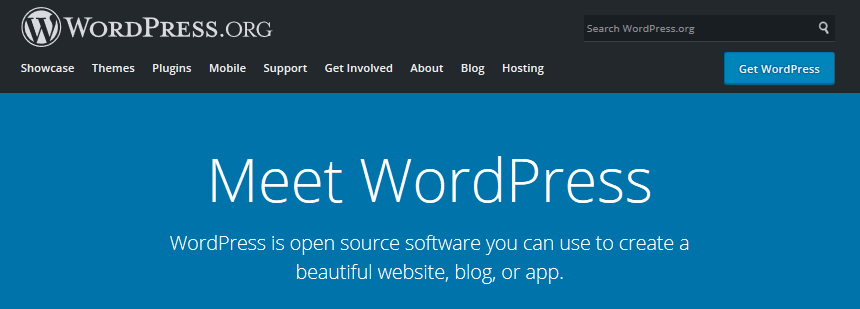
WordPress, first launched in 2003, is open-source software that’s typically installed on servers by a third-party hosting service like SiteGround or Bluehost.
Originally built as a blogging platform, WordPress has evolved into much more than that over the years. In fact, with this content management system, you can blog, build an eCommerce shop using WooCommerce, run an online business, or just build brand awareness for your company.
It comes with basic content creation tools and does not require you have any coding or technical knowledge to use – no matter what kind of website you want to build. Not to mention, the plugins and themes available make customizing your WordPress site a cinch.
Pros of Using WordPress
There are plenty of reasons why WordPress CMS is a popular choice:
Cost
WordPress is free to use. All you have to do is download the software onto your website and start building. That said, you’ll have to buy a domain name and invest in WordPress web hosting. Luckily, there are some very affordable web hosting companies out there that will help you install WordPress onto your site within 5 minutes or less.
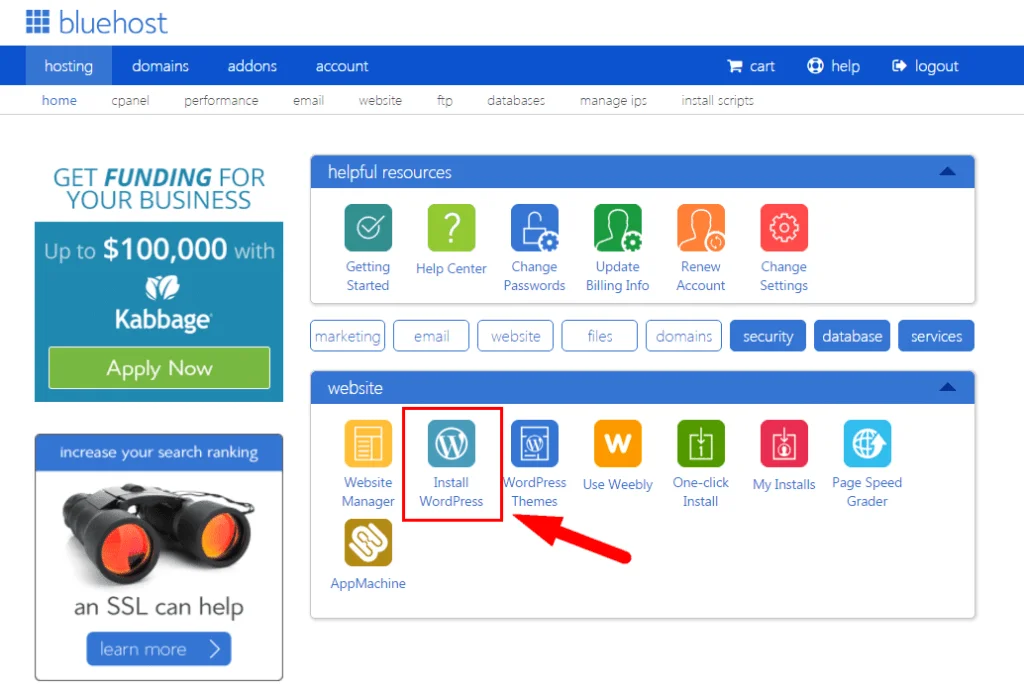
Open-Source
As we mentioned before, WordPress is open-source software. In other words, anyone can make changes to the core software. It also means there’s a large WordPress community out there that’s dedicated to making the WordPress CMS better.
Because of its open-source nature, you never have to worry about WordPress just disappearing. There’s just too much stock in the platform and too many expert developers from around the world contributing to its success for it to go away. In addition, you can always expect improvements.
Plugins and Themes
At its core, WordPress CMS is pretty straightforward when it comes to design and functionality. That’s where plugins and themes come into play. In the WordPress Repository alone (a highly trusted source for high-quality and FREE plugins and themes) there are tens of thousands of pieces of software for you to use on your website.

Here’s a look at what each can do for your budding WordPress site:
- Plugins: give you the power to customize your site’s functionality. For example, you can install a WordPress plugin on your site to add a contact form, analyze site visitor behavior, enhance SEO, and even increase page load times.
- Themes: give you a way to customize the look of your website. For instance, change the typography, layout, color scheme, and more.
Community
One of the best things about the WordPress CMS is its growing community of people dedicated to making the platform better. You can get support, help, and even inspiration from developers and users alike – for free.
FTP Access
If you’re an advanced developer and want to build fully customized websites for yourself or clients, WordPress grants FTP access. This gives you complete control over the entire development of your site.
This is also great for those that want to test a new plugin, design, or install a new theme. Once you know everything works the way it should, you can push the changes to your live site without any worries.
Cons of Using WordPress CMS
Of course, the WordPress CMS isn’t perfect. Here’s a list of some of its weaknesses:
- It’s Too Simple: ease of use is always a priority, even for advanced developers. But WordPress is nothing fancy, which can lead your website to look very similar to others, without you even knowing it. This is especially true if you have no technical skills and don’t know how to customize your site using CSS.
- Security Issues: since WordPress is the most widely used CMS in the world, it’s the most vulnerable. In fact, 90% of web hacks are attributed to WordPress sites. Because of this, you have to be diligent about securing your site on your own. This includes updating all software, using a reliable web host, and encrypting information shared between you and your visitors.
- Site Speed: just like security, the speed of your WordPress website depends on you. This is a problem if you don’t know how to speed up websites. It will also likely require you to install additional speed improvement plugins on your site to help.
HubSpot CMS Review

CMS Hub, brought to you by the HubSpot team, is a cloud-based content management system that gives marketers and developers a way to create websites centered around the user experience. You can create content, optimize for conversions, and analyze the effectiveness of your efforts, all from one spot.
In other words, the HubSpot CMS goes beyond a content management system and becomes a content optimization system (COS) instead.
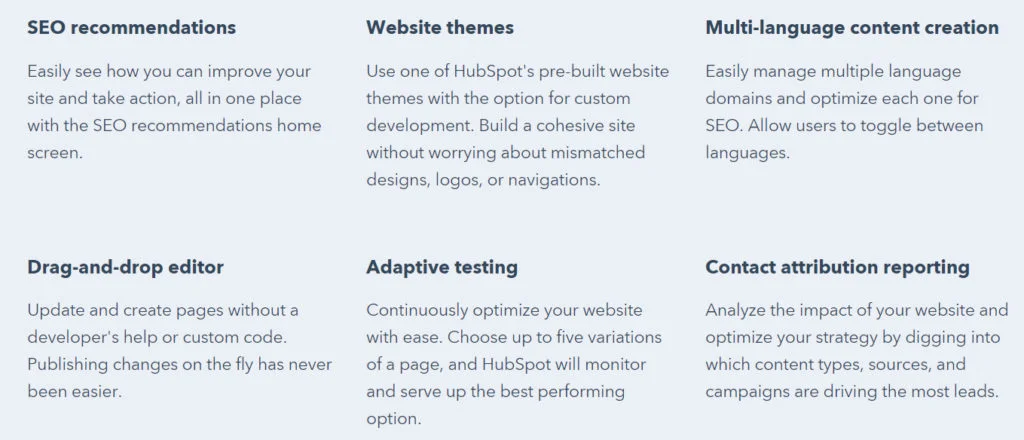
Pros of Using HubSpot CMS
Just like WordPress, HubSpot CMS has lots to offer users:
Uniqueness
CMS Hub is a unique product that combines marketing and analytics with the ability to create a content-rich website. In other words, it’s an all-in-one platform that gives you all the tools you need to succeed in one place, rather than having to piecemeal it together like WordPress.
Not convinced CMS Hub has it all? Check out just some of the things that come integrated into the HubSpot CMS:
- Hosting
- CDN services
- Blogging tools
- SEO
- Social media
- Responsive design
- AMP support
- A/B testing
- Detailed analytics
- Content collaboration
- Landing page creation
- Built-in security measures
- Subscriptions
- Other HubSpot CRM tools
- And much more
In the end, there’s no need to hunt for the perfect theme or third-party plugins to get your website to function the way you want it to when you use the HubSpot website builder.
With CMS Hub you can build websites using flexible themes and content structures, easily edit and create pages to create websites that are well designed, secure and optimized for search engines and user experience.
Live Preview
CMS Hub is a visually pleasing interface that lets you make changes and view them in real-time using the drag and drop tool.
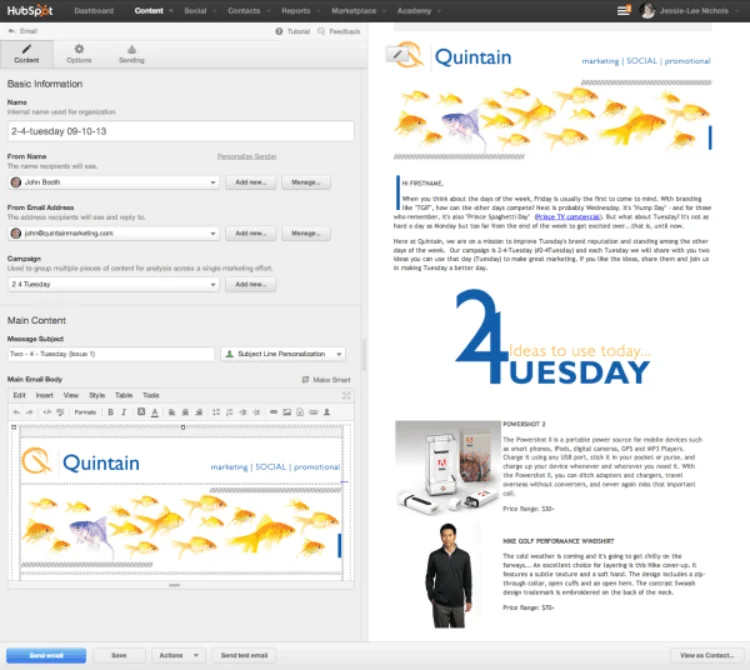
WordPress does not come with native live preview functionality. Instead, you have to install drag and drop page builder to get a feature CMS Hub offers out of the box.
Built-in Personalization
Retargeting those that have visited your site before is not a new concept. However, delivering a CMS with built-in retargeting features is. Tracking site visitors’ behavior while on your website, HubSpot CMS helps deliver personalized content the next time they visit in hopes of helping them convert for the first time (or again!).
Dedicated Support
Sure, with WordPress you can get the help of community members who are familiar with the CMS to help you out. Or, you might be able to reach out to a theme or plugin author for some help. But the truth is, WordPress support is nothing short of scattered. With CMS Hub, the support comes from one place and is accessible 24/7 via phone, email, or live chat.
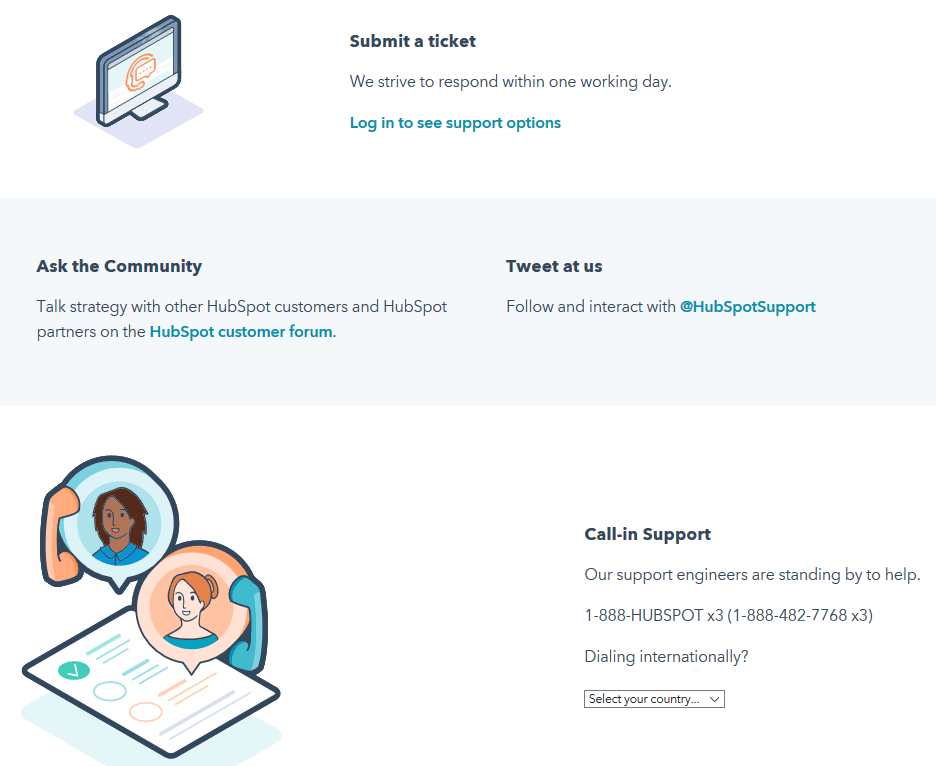
In addition, you can browse the Knowledge Base, interact with support via Twitter, access the HubSpot customer forum, and even submit a support ticket via your HubSpot account.
Cons of Using HubSpot CMS
As with all things, there are some disadvantages to using the HubSpot CMS:
- Not Open-Source: unlike WordPress, which is a huge collaborative effort, the success and advancement of CMS Hub fall onto the HubSpot team. This also means you cannot make your own changes to the CMS like you can with WordPress.
- Less Control: with the HubSpot CMS you have to give up some control. For example, you cannot choose which company hosts your website because HubSpot handles that for you. Plus, there is no FTP access, which is a popular WordPress feature.
- Cost: the HubSpot CMS is not cheap. And while you do get a discount for paying annually, the lowest tiered of the two plans will cost you $300 a month. That said, there is a HubSpot CMS free 14-day trial available, so you can see whether you like the platform or not.
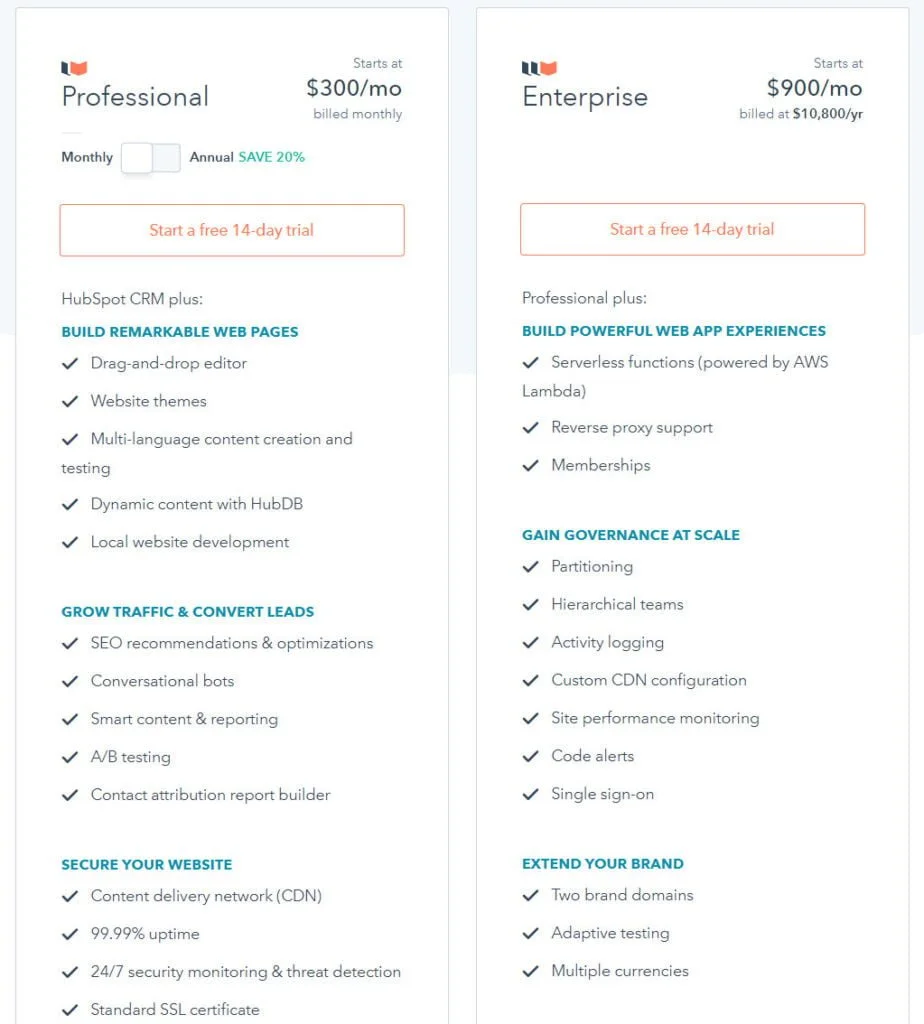
Conclusion: HubSpot vs WordPress CMS, Which is Better?
In this WordPress vs HubSpot CMS showdown, there really is no true winner. Each content management system has a lot to offer website owners in terms of design and functionality.
That said, for those that don’t have the time or patience to deal with WordPress, those that love using other HubSpot marketing tools, or those that want a more hands-off approach to site building and maintenance, CMS Hub is a great choice. It comes with everything you need to create a website, build brand awareness, and monitor your success.
Plus, you never have to seek out additional software to help you reach your goals and the team behind the CMS is on-hand 24/7 to help you achieve your goals.
